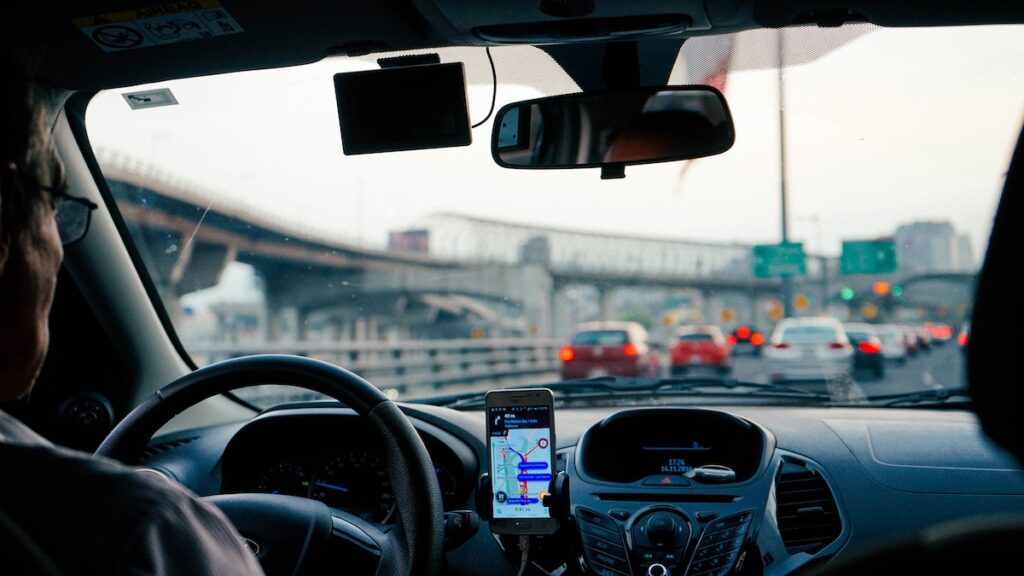Rideshares like Uber and Lyft transport tens of millions of passengers a year. Whether it’s for a ride to the airport or a night out with friends, chances are you’ve ridden in one. What happens if you are injured in a rideshare accident? What if you are injured by a rideshare driver while driving in your own car? Who will pay for your injuries? The driver? Uber or Lyft? A personal injury attorney can help answer these questions.
Risk Factors
Most of the time, the rideshare experience is safe and uneventful. However, a few factors have the potential to increase the risk of an accident during your Uber or Lyft ride.
• Distracted Driving: Unless your driver knows the route to your destination by heart, they will have to follow directions — either on a phone or another GPS device. This means they will be frequently take their eyes off the road.
• Recklessness: Like taxi drivers, Uber and Lyft drivers are often motivated to get you to your destination as quickly as possible. After all, they want you to be happy, and they want a good review and a tip. They also want to get your fare and move on to the next fare. These factors can push your driver to take chances on the road.
• Buckling-Up: This one has more to do with the actions of the rideshare passenger than those of the rideshare driver. We are sometimes less likely to put on a seat belt while in a taxi or rideshare, particularly if we are in the backseat. Why? Often the seat belt buckles are difficult to find, especially if there are several passengers are in the back seat.
• Fatigue: Many rideshare drivers also work another job (or two). By the time they pick you up, they may have already worked a long day (or night). Sleepiness can dull critical reaction time. In a few situations, rideshare drivers have actually fallen asleep at the wheel, causing an accident.
Injured as a passenger
So you’ve been injured while riding in an Uber or Lyft. Maybe 1) the rideshare vehicle was hit by another car, or maybe 2) the crash was caused by your rideshare driver. Let’s look at the first scenario.
If you were injured in an accident caused by another driver while you were riding in an Uber or a Lyft, you will have a claim against that other driver’s insurance — as long as they have insurance. It’s pretty simple. But from a legal perspective, things get far more complicated under the second scenario (above), where the accident is the fault of your rideshare driver.
Coverage denied?
At its most basic level, rideshare is just someone driving around in their own car, picking up passengers for money. The rideshare driver, like the rest of us, will typically have a personal auto insurance policy for their car — in fact, both Uber and Lyft required this. Most personal auto policies do not provide coverage for rideshare driving. This means that if you are injured while in an Uber or Lyft the rideshare driver’s insurance company likely will not cover your claim.
One solution to this problem is for the driver to add commercial insurance coverage (called a rider) to their personal auto policy. But many jurisdictions (states) do not require rideshare drivers to carry commercial coverage, and adding this coverage can be an expense for the rideshare driver.
Claims directly again Uber and Lyft
What about Uber and Lyft, themselves? Can you make a claim against them for your injuries? Both companies have worked hard to make sure that their rideshare drivers are legally classified as “independent contractors” and not as employees. This has allowed them to put the insurance burden back on their drivers. But there is some good news: After caving to pressure, Uber and Lyft now both offer insurance coverage for passengers injured while in their rideshares. This means that even if your rideshare driver did not have any commercial coverage, you may still have a claim against Uber or Lyft. That simplifies things, right? Not really.
The extent of coverage provided by Uber and Lyft depends on what stage of the rideshare process your driver was in at the time of the accident. Were they waiting to pick up a passenger? Were they on their way to pick up a passenger? Did they already have passengers in their car? Was their Uber app activated? The extent and types of coverage that Uber and Lyft offer depend upon deciphering these “stages.” To complicate things even further, many states deal with rideshare insurance coverage differently.
Injured by a rideshare driver while driving your own car?
What if you are driving your car and are hit by an Uber or Lyft driver? The same analysis will apply to passengers in rideshares. If the rideshare driver did not have commercial issuance, it may all come down to the Uber and Lyft coverage tiers.
It’s very difficult to navigate the rideshare claims process without the help of an experienced attorney. Your attorney will determine all the parties that may be responsible for your injuries and will decipher the extent of insurance coverage. An experienced personal injury attorney will know the relevant laws in Utah and will negotiate the best settlement for you; they may even sue Uber or Lyft, if necessary.




